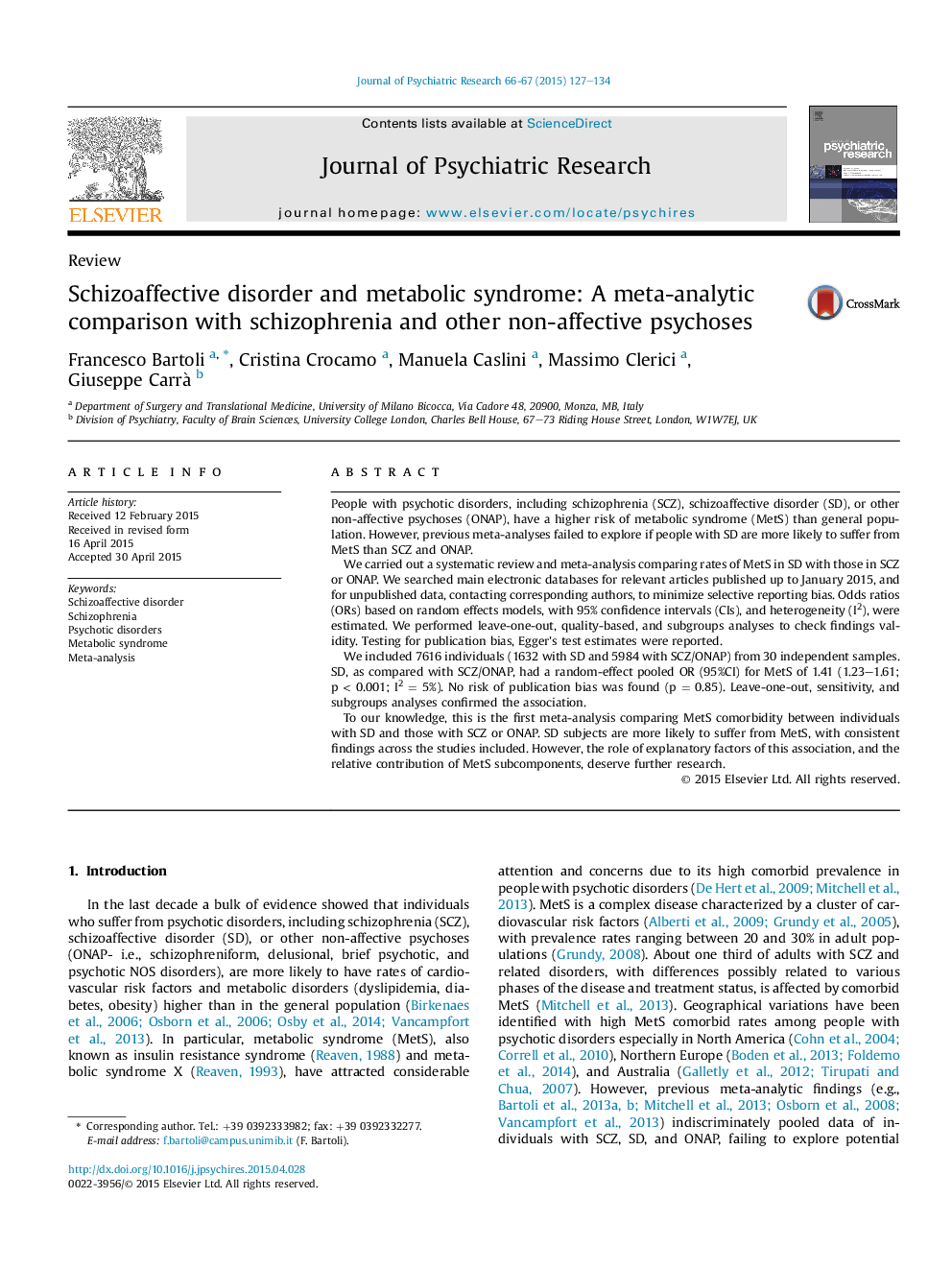| Article ID | Journal | Published Year | Pages | File Type |
|---|---|---|---|---|
| 327295 | Journal of Psychiatric Research | 2015 | 8 Pages |
•Previous research highlighted high rates of MetS among psychotic disorders.•This meta-analysis found that SD had MetS rates higher than SCZ and ONAP.•No heterogeneity, neither risks of publication or selective reporting biases were found.•SD people are more vulnerable to metabolic abnormalities than those with SCZ/ONAP.
People with psychotic disorders, including schizophrenia (SCZ), schizoaffective disorder (SD), or other non-affective psychoses (ONAP), have a higher risk of metabolic syndrome (MetS) than general population. However, previous meta-analyses failed to explore if people with SD are more likely to suffer from MetS than SCZ and ONAP.We carried out a systematic review and meta-analysis comparing rates of MetS in SD with those in SCZ or ONAP. We searched main electronic databases for relevant articles published up to January 2015, and for unpublished data, contacting corresponding authors, to minimize selective reporting bias. Odds ratios (ORs) based on random effects models, with 95% confidence intervals (CIs), and heterogeneity (I2), were estimated. We performed leave-one-out, quality-based, and subgroups analyses to check findings validity. Testing for publication bias, Egger's test estimates were reported.We included 7616 individuals (1632 with SD and 5984 with SCZ/ONAP) from 30 independent samples. SD, as compared with SCZ/ONAP, had a random-effect pooled OR (95%CI) for MetS of 1.41 (1.23–1.61; p < 0.001; I2 = 5%). No risk of publication bias was found (p = 0.85). Leave-one-out, sensitivity, and subgroups analyses confirmed the association.To our knowledge, this is the first meta-analysis comparing MetS comorbidity between individuals with SD and those with SCZ or ONAP. SD subjects are more likely to suffer from MetS, with consistent findings across the studies included. However, the role of explanatory factors of this association, and the relative contribution of MetS subcomponents, deserve further research.
